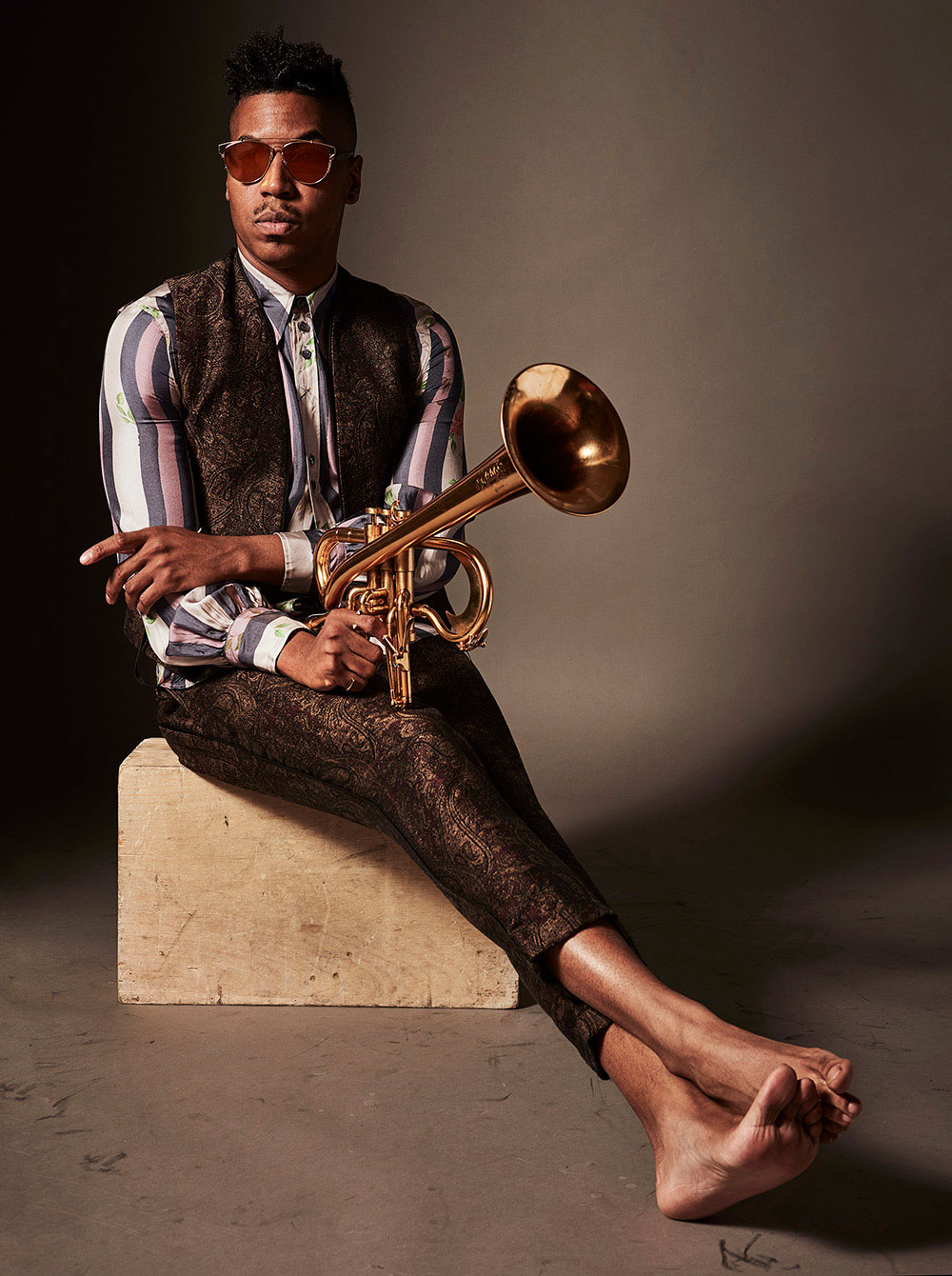As a child, Christian Scott was a trumpeter. His grandfather gave him and Kiel additional reading assignments every week to supplement their schoolwork. Their grandfather would tell them that if they failed to complete their assignments within a week, he would say “Yesterday, you said tomorrow .” This was his way of emphasizing how important it is to recognize the work and make the best use of the time available to complete it. The brothers were able to graduate at the top of their high schools class at the New Orleans Center for the Creative Arts. Christian was awarded a full scholarship and headed north to Berklee College of Music. He earned two degrees in just two years, and launched a career as a musician that has made him one of the most innovative musicians of his generation. Scott learned along the way that there is still much to do in jazz, and in jazz in general. Yesterday You Said Tomorrow is Scott’s March 30, 2010 release on Concord Jazz. It pays tribute to some of his musical heroes from the 1960s and uses music as a tool for addressing some of the most important issues in contemporary culture. Scott, who worked as a session musician at Van Gelder Recording Studios, Englewood Cliffs (New Jersey), in April 2009, says, “I’ve never worked as hard on an album.” Scott produced the album with Chris Dunn. Rudy Van Gelder, a veteran jazz engineer, engineered it. I wanted to create a musical background that reflected everything I loved about music from the 1960s, including Miles Davis’ second quintet, Coltrane and Mingus’ bands, as well as music by Jimi Hendrix and Bob Dylan. That era’s music had more depth, regardless of whether it was rock, jazz, folk, or whatever. There were musicians who didn’t mind referencing the political and social climate of that time in their music. The ones who could do that, and also captured people’s attention in a way that was true to their humanity, were the ones who lasted the longest. Scott was born in 1983. However, Scott has always been aware of jazz’s legacy and its place in 20th-century history. His uncle, Donald Harrison, a jazz musician and member of Art Blakey’s Jazz Messengers, taught Scott much of this information. Scott, who was 12 when he first started playing the trumpet, says, “Some people start off with bebop. Some people start off with post-bop. Some people start out with fusion.” My uncle brought me back to the beginning of music. He taught me things that Buddy Bolden was doing in the early 1900s.” Scott joined his uncle’s band at 13 years old, and when he turned 16 he recorded Paradise Found with Harrison. This gave him an advantage over his peers at Berklee and high school. He made his solo debut in 2002 with Christian Scott’s self-released, self-titled album. After gaining significant attention and landing an agreement with Concord Jazz to record his album, Christian Scott, Scott released Rewind That in 2006. It was an album that combines modern jazz, rock, and R.
